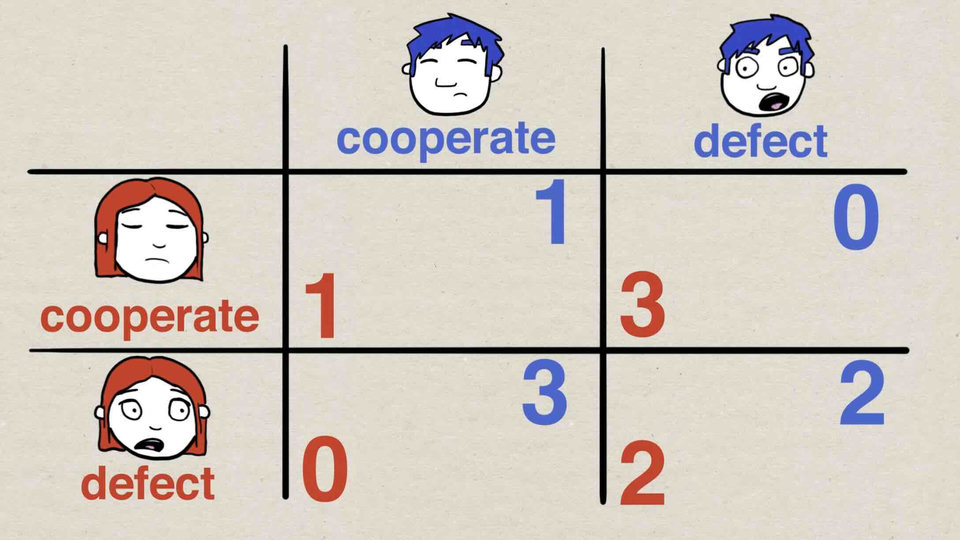
Prisoner's Dilemma

The Prisoner’s Dilemma is a hypothetical game set up showing a situation where people won’t want to work together even when it’s beneficial to do so.
It’s just a long way of saying people don’t like to be taken advantage of. It’s often game theory 101.
The Prisoner’s Dilemma illustrates the complexities of strategic decision-making, where individuals must choose between cooperation and betrayal, often revealing insights into human behavior and the consequences of self-interest versus collective benefit.
Premise
Source: Wikipedia
Two members of a criminal gang are arrested and imprisoned. Each prisoner is in solitary confinement with no means of speaking to or exchanging messages with the other. The police admit they don’t have enough evidence to convict the pair on the principal charge.
They plan to sentence both to a year in prison on a lesser charge. Simultaneously, the police offer each prisoner a bargain. If he testifies against his partner, he will go free while the partner will get three years in prison on the main charge. Oh, yes, there is a catch …
If both prisoners testify against each other, both will be sentenced to two years in jail. The prisoners are given a little time to think this over, but in no case may either learn what the other has decided until he has irrevocably made his decision.
Each is informed that the other prisoner is being offered the very same deal. Each prisoner is concerned only with his own welfare—with minimizing his own prison sentence.
This leads to four different possible outcomes for prisoners A and B:
- If A and B both remain silent,
- they will each serve one year in prison.
- If A testifies against B but B remains silent,
- A will be set free while B serves three years in prison.
- If A remains silent but B testifies against A,
- A will serve three years in prison and B will be set free.
- If A and B testify against each other,
- they will each serve two years.
The Iterated Prisoner’s Dilemma
It is just like the regular game except you play it multiple times with an opponent and add up the scores. But it can change the strategy and has more real world applications as it resembles a relationship.
This is closely related to trust, human behavior, and social constructs in relationships that impact us both individually and collectively.
In the Prisoner’s Dilemma, the best strategy is to start with cooperation, but then mimic the other player’s previous action in the following rounds – rewarding cooperation and punishing betrayal.
Don’t trust, verify.